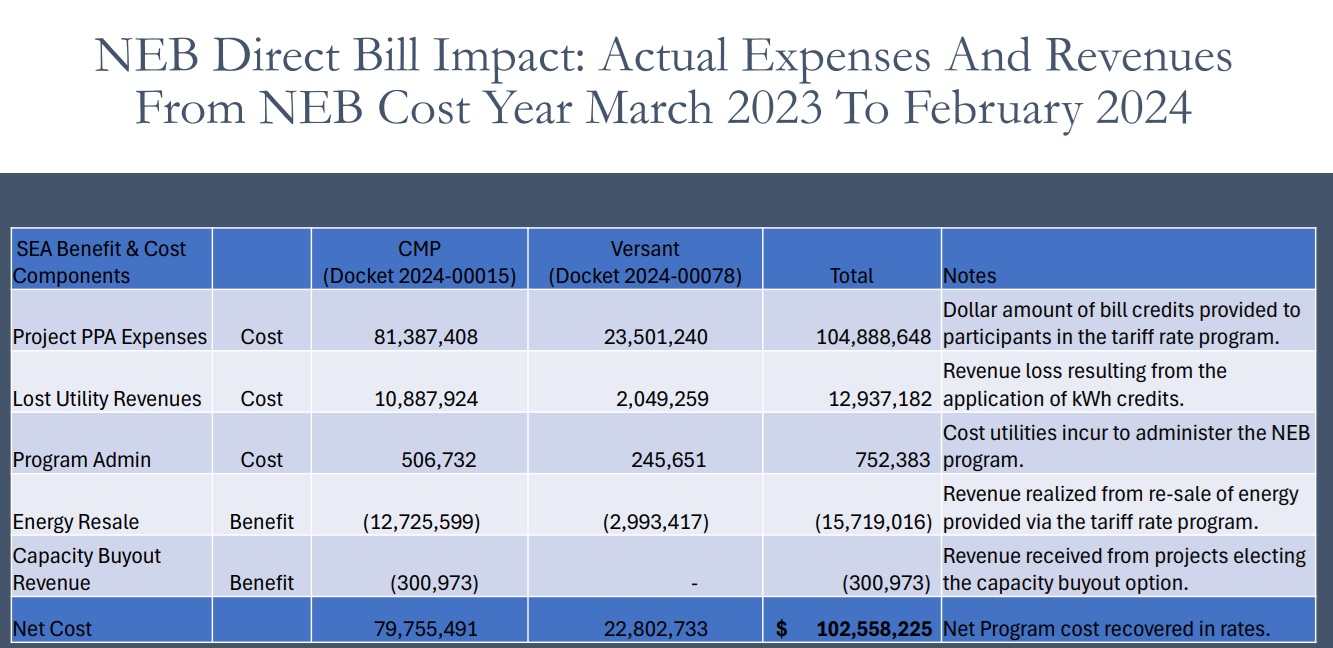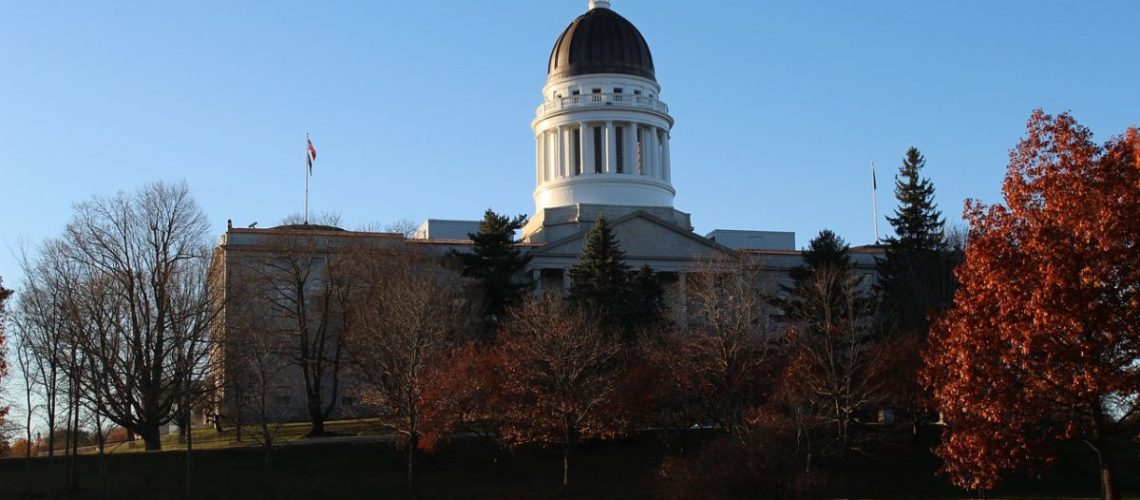Sponsored by Senators Trey Stewart (R-Aroostook) Stacey Guerin (R-Penobscot) two nearly identical bills, LD 32 and LD 257, aim to do away with rules that allow owners of solar projects of a certain size to receive credit for the energy sent to grid.
“These bills ultimately threaten to dismantle community solar, one of the few programs delivering real electricity savings to Maine residents and businesses while making significant investments in the Maine distribution grid,” said Nate Owen, CEO of Ampion Renewable Energy, a company that provides subscription services for community solar projects.
Ampion was founded in Maine and now operates nationwide. The company currently manages subscriptions for 48 community solar projects in Maine, amounting to over 215 MW (DC), reportedly saving Maine subscribers more than $5 million in utility charges since the beginning of the net energy billing program.
“This bill repeals the laws that authorize the Public Utilities Commission to adopt rules governing net energy billing and that direct the commission to establish a net energy billing program for commercial and institutional customers of investor-owned transmission and distribution utilities,” the Maine Public Utilities Commission said.
The bills go a step beyond abolishing net metering, intending to repeal provisions that allow for property tax exemptions for solar energy equipment for net energy billing customers.
According to Kate Daniel, Northeast regional director of the Coalition for Community Solar Alliance (CCSA), it is not true that eliminating net energy billing will lower energy costs, as its supporters claim. “The program has already been proven to deliver net benefits to all Maine ratepayers, generating $1.23 in benefits for every $1 invested in local solar,” Daniel told pv magazine USA.
Bill sponsor Senator Stacey Guerin voiced at a recent press conference the “cost-shifting” argument often used by opponents of net metering.
“Net energy billing creates a situation where those who invest in solar panels receive significant credits for the excess energy they produce, effectively shifting the cost of maintaining the grid to those who don’t have solar,” said Guerin.
Cost-shifting is a claim backed by utilities that electric bill payers that do not have rooftop solar are subsidizing their solar-installed neighbors. By paying solar customers a retail rate for electricity exported to the grid from a rooftop solar array, utilities say they are incurring a cost that must be paid in the form of raised electric rates.
In contrast, in a recent presentation Cost and Benefits of Net Energy Billing by Maine Public Utilities Commission (MPUC) the commission explained that net metering more than pays for itself as net energy billing projects pay for grid upgrades as part of interconnection costs. “This may reduce future upgrades required and reduce future ratepayer costs. The SEA report has estimated that 25% of interconnection costs paid by developers will reduce future ratepayer investment.”
MPUC showed in its presentation that utility revenue loss resulting from the application of kWh credits amount to just under $13 million, whereas revenue realized from re-sale of energy provided by the tariff rate program is approaching $16 million.
Other benefits cited in the presentation include line losses avoided by distributed generation reducing load by adding distributed generation. It also noted that distributed resources act as load reducers by generating energy during periods of high demand, which could reduce future needs for investment in transmission and distribution.

“The real drivers of rising electricity costs—volatile natural gas prices and extreme weather—won’t be fixed by gutting NEB. Instead, cutting these programs would strip Maine communities of cost-saving clean energy solutions while doing nothing to address the root causes of high energy bills,” Daniel said.
Maine’s solar status
Maine’s commitment to solar energy generation has been strong and growing, with the states currently receiving just over 13% of its electricity from solar, far more than neighbor New Hampshire, which is generating just 1.9%.
Maine is also a national leader in community solar. According to the Wood Mackenzie and CCSA report, New York, Maine and Illinois led the nation in community solar installations, accounting for 83% of national volumes. These top three states all have strong community solar policy. Maine, for example, was an early adopter, passing original legislation in 2009. Due to net metering caps and policy changes, it was updated in 2019.
As Maine’s highly successful community solar program operates under the same statute as net metering, Daniel said that LD 359 “specifically targets the ability to do shared solar, retroactively altering community solar projects, creating even more uncertainty for Mainers who have invested in local clean energy.”
“If these bills pass, we’re not just talking about harming an industry—we’re talking about eliminating consumer choice, stifling private investment, and making it harder for Maine to achieve its energy and economic goals,” said Owen. “The community solar industry, including Ampion, has injected hundreds of millions of dollars into the Maine economy and has employed thousands of people throughout the state. These bills threaten all of these efforts. They certainly do not reflect the Dirigo spirit of Maine.”
Changes to net metering policies are taking place in states across the nation with some regularity, however, its effect is the most dramatic in California. Once the leading solar market in the country, California implemented what’s become known as net metering 3.0, which has been called a “fight against rooftop solar.” The state slashed the credit for exporting solar from the home to the grid by about 80%, then the assault continued, as California Public Utilities Commission approved $24 monthly fixed charges that are paid even if 100% the home’s energy is provided by solar. The rooftop solar market in California has crashed following these changes.
CCSA’s Daniel noted that over 110,000 Maine customers depend on net metering bill savings to help manage energy costs and make ends meet. The bills would “take a chainsaw to Maine’s solar programs—a reckless attempt at reform that misdiagnoses the problem and worsens the outcome for ratepayers,” Daniel said.
A public hearing is scheduled for 9 a.m. Thursday, Feb. 27.
Popular content




